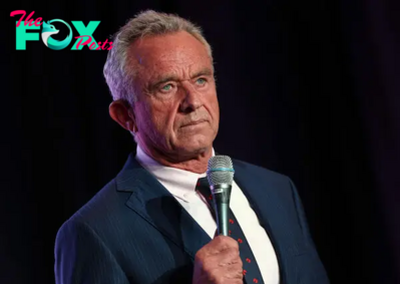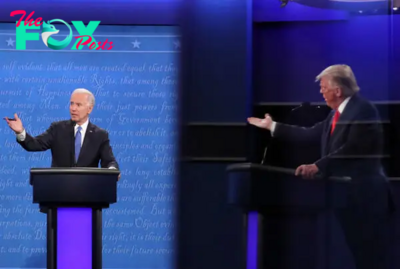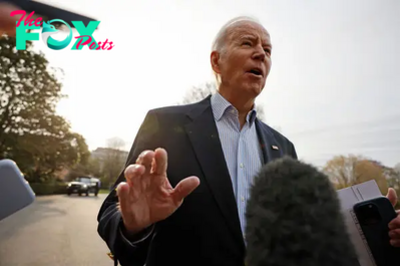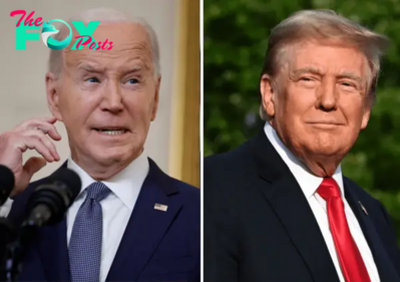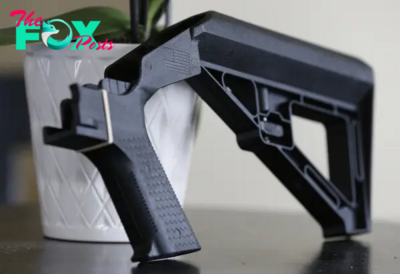Politics
Michael Cohen Says He Stole from Trump’s Company as Defense Presses Key Hush-Money Trial Witness
(NEW YORK) — Former Donald Trump attorney Michael Cohen admitted Monday to jurors in the Republican's hush money trial that he stole tens of thousands of dollars from Trump's company as defense lawyers seized on the star witness' misdeeds to attack his credibility.
With the prosecution's case nearing its end, Trump's attorneys hope Cohen's admission — on top of his numerous other past lies and crimes — will sow doubt in jurors' minds about Cohen's crucial testimony implicating the presumptive Republican presidential nominee in the hush money scheme. The defense has painted Cohen as a serial fabulist who is on a revenge campaign aimed at taking down Trump.
Back on the witness stand for a fourth day, Cohen admitted while being questioned by defense attorney Todd Blanche that he pocketed cash that was supposed to be reimbursement for a $50,000 payment Cohen claimed he had shelled out to a Technology firm. But Cohen actually gave the Technology firm just $20,000 in cash in a brown paper bag, he said.
“So you stole from the Trump Organization?,” Blanche asked.
“Yes, sir,” Cohen replied. Cohen said he never paid the Trump Organization back. Cohen has never been charged with stealing from Trump’s company.
Cohen is the last prosecution witness, and it's not yet clear whether Trump’s attorneys will call any witnesses, let alone Trump himself.
Read More: Trump Trial Comes Down to Michael Cohen’s Credibility
After more than four weeks of testimony about sex, money, tabloid machinations and the details of Trump's company recordkeeping, jurors could begin deliberating as soon as next week to decide whether Trump is guilty of 34 felony counts of falsifying Business records in the first criminal trial of a former U.S. president.
The charges stem from internal Trump Organization records where payments to Cohen were marked as legal expenses, when prosecutors say they were really reimbursements for Daniels' hush money payment.
Trump has pleaded not guilty. His lawyers say there was nothing criminal about the Daniels deal or the way Cohen was paid.
"There’s no crime," Trump told reporters after arriving at the courthouse Monday. “We paid a legal expense. You know what it’s marked down as? A legal expense."
While Cohen is prosecutors’ most important witness, but he is also vulnerable to attack.
The now-disbarred attorney has admitted on the witness stand to previously lying under oath and other falsehoods, many of which he claims were meant to protect Trump. Cohen served prison time after pleading guilty to various federal charges, including lying to Congress and a bank and engaging in campaign finance violations related to the hush money scheme.
And he has made millions of dollars off critical books about the former president, whom he regularly slams on social media in often profane terms.
Blanche grilled Cohen on Monday about his initial public denials that Trump knew about the Daniels payoff. After The Wall Street Journal reported in January 2018 that Cohen had arranged the payout to the porn actor more than a year earlier, Cohen told journalists, friends and others that Trump had been in the dark about the arrangement.
He did not change his account until after federal authorities in April 2018 searched Cohen’s home, office and other locations tied to him. Four months later, Cohen pleaded guilty to campaign-finance violations and other charges and told a court that Trump had directed him to arrange the Daniels payment.
Read More: Trump and Hush-Money Trial’s Central Witness Share a Tortured History
Known for his hot temper, Cohen has remained mostly calm on the witness stand despite sometimes heated interrogation by the defense about his misdeeds and the allegations in the case.
Jurors remained largely engaged with Cohen’s testimony, though some appear to be dragging as his testimony stretched into another day. Several jurors stifled yawns while peering at the witness and looking at monitors in front of them as emails and other evidence were displayed. Some took notes. Others sat back and took in the testimony, occasionally peering at the gallery of reporters and public observers.
Cohen told jurors that Trump was intimately involved in the scheme to pay off Daniels to prevent her from going public late in his 2016 presidential campaign with claims of a 2006 sexual encounter with Trump. Trump says nothing sexual happened between them.
Cohen told jurors about meetings and conversations with Trump, including one in 2017 in which Cohen says he, Trump and then-Trump Organization finance chief Allen Weisselberg discussed how Cohen would recoup his outlay for the Daniels payment and how the reimbursement would be billed as “legal services."
Manhattan District Attorney Alvin Bragg’s office is expected to rest its case once Cohen is off the stand, but prosecutors would have have an opportunity to call rebuttal witnesses if Trump’s lawyers put on witnesses of their own. Judge Juan M. Merchan, citing scheduling issues, says he expects closing arguments to happen May 28, the Tuesday after Memorial Day.
Defense lawyers said they have not decided whether Trump will testify. And Trump did not respond to shouted questions from reporters about whether his lawyers have advised him not to take the stand. Defense attorneys generally are reluctant to put their clients on the witness stand and open them up to intense questioning by prosecutors, as it often does more harm than good.
Trump’s lawyers have said they may call Bradley A. Smith, a Republican law professor who was appointed by former President Bill Clinton to the Federal Election Commission, to refute the prosecution’s contention that the hush money payments amounted to campaign-finance violations. But the judge has limited what Smith can address.
There are often guardrails around expert testimony on legal matters, on the basis that it’s up to a judge — not an expert hired by one side or the other — to instruct jurors on applicable laws in a case.
Merchan has ruled that Smith can give general background on the FEC, the laws it enforces and the definitions of such terms as “campaign contribution.” But he cannot interpret how federal campaign-finance laws apply to the facts of Trump’s case or opine on whether the former president’s alleged actions violate those laws.
___
Richer reported from Washington. Associated Press reporters Jill Colvin in New York and Meg Kinnard in Columbia, South Carolina, contributed to this report.
-

 Politics2h ago
Politics2h agoForgotten but not gone. Summer means another COVID wave is here. – Nick Landekic
-

 Politics1d ago
Politics1d agoBryson DeChambeau is changing his image as he wins his 2nd U.S. Open title – John Cardullo
-

 Politics1d ago
Politics1d agoCranston Mayor Hopkins takes entire City Council to court TODAY to clarify spending powers
-
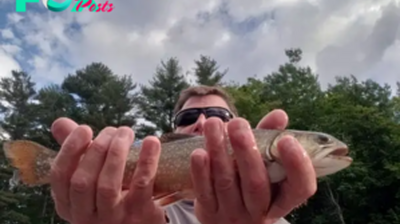
 Politics1d ago
Politics1d agoOutdoors in RI: Maine fishing, vacay choices, tracking 2A, elections, voting – Jeff Gross
-

 Politics2d ago
Politics2d agoSaying a final goodbye to Willie Mays, baseball’s ‘Say hey kid’
-

 Politics2d ago
Politics2d agoPaying reparations for slavery is possible – based on a study of federal compensation to farmers, fishermen, coal miners, radiation victims and 70 other groups
-

 Politics2d ago
Politics2d agoHow Biden’s executive order to protect immigrant spouses of citizens from deportation will benefit their families and communities
-
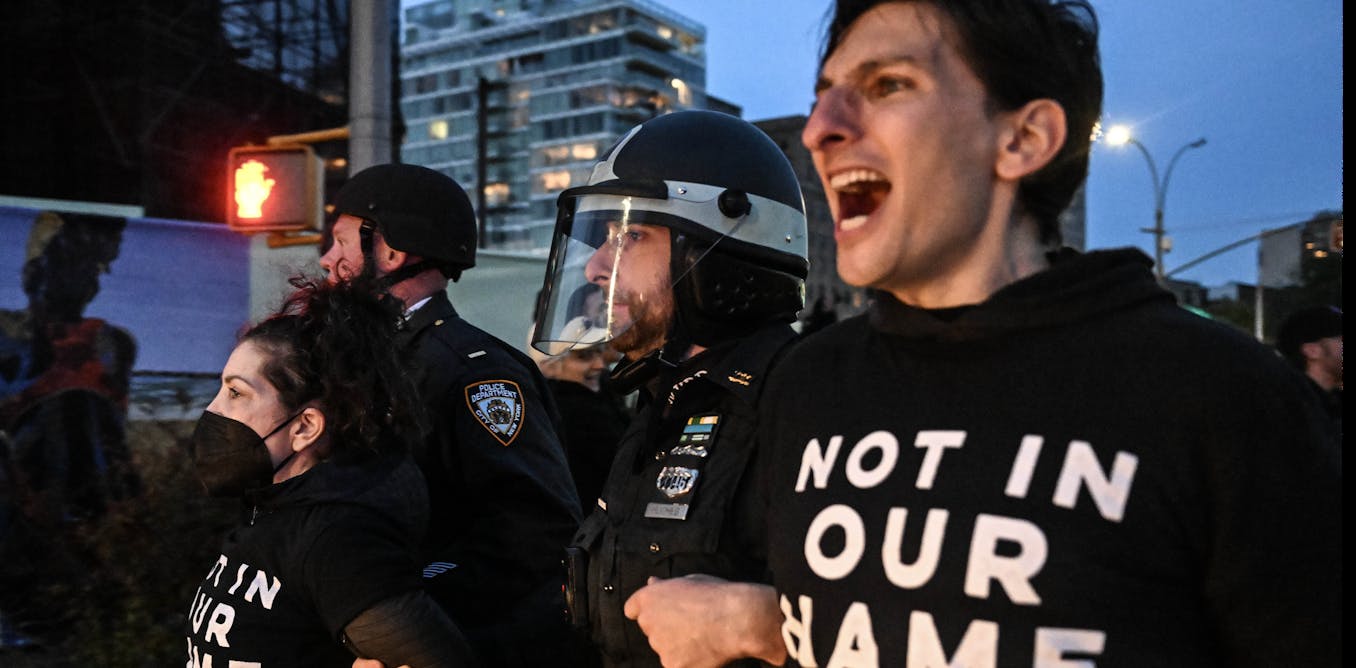
 Politics2d ago
Politics2d agoJewish critics of Zionism have clashed with American Jewish leaders for decades
